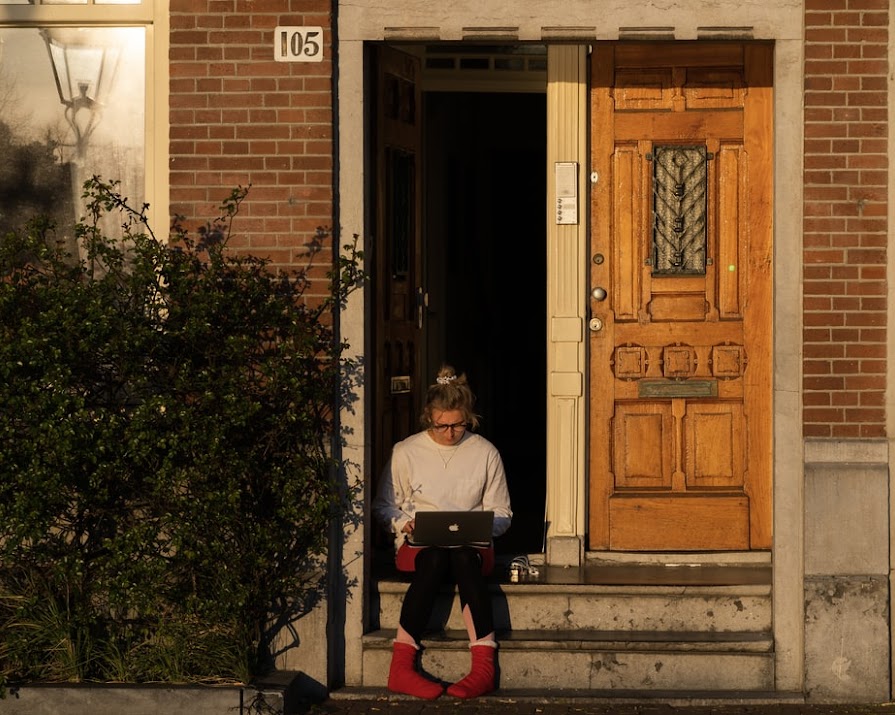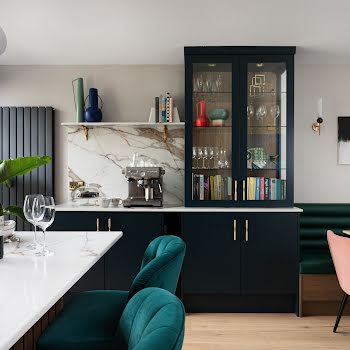
By Erin Lindsay
13th Oct 2020
13th Oct 2020
WFH life has so many benefits for working families: but for young professionals, it can be a different story
Almost exactly 7 months ago, I was sitting in an office chair, glued to my computer screen with colleagues gathered around me, watching our then-Taoiseach Leo Varadkar address the nation. He spoke about a virus that, a few weeks previously, I had no more than a passing knowledge about. He told us all that we would have to reduce our movements, increase our hand washing and start working from home if we could, for at least the next two weeks.
Imagine my excitement. I could sleep in and avoid that 1.5 hour daily commute (each way); I could catch up on TV shows, and get some bits done around the house. Working from home was a dream scenario seldom afforded to me – I don’t have kids, or dependants at home, so there was never a pressing need for me to keep my schedule open. I was expected, like 95% of the rest of the workforce, to be a part of the 9-5 rat race. Getting out of that sounded like heaven, and I was delighted at the prospect of a couple of weeks to myself.
A couple of weeks turned into seven months, and I’m still here at my kitchen table. Throughout those months, the world has seen unimaginable change – thinking back to that last day in the office, surrounded by people, seems so surreal now. Covid-19 has altered almost every area of our lives, and how we work is one thing that may never return to ‘normal’.
My day-to-day
Since the beginning of the summer, my housemates and boyfriend have returned to work but, luckily, my job is still able to be done from home. I say ‘luckily’ purely because it means I am at much less of a risk of contracting Covid-19. Apart from that, I’m struggling to find the positives.
For around 8 hours every day, I am completely alone. I get up, get dressed and go to work without taking more than 20 steps. During working hours, I communicate with my work mates through email, with the odd Zoom meeting thrown in, but most of my day is in silence. I take regular breaks, take walks when the weather allows it, and try and keep to a schedule, but inertia sets in without fail these days. Afternoons that could be spent doing something meaningful are lost to endless scrolling on social media (always a sign for me that my mental health is taking a hit) and taking much longer than is necessary to do basic tasks at work. I end each day feeling listless and unfulfilled, unable to switch my brain from work mode to home mode, since they’re all in the same place anyway.
I’m 26 years old, and up until this year, considered myself someone who was fairly good at being on my own. Being a writer and editor, I tend to prefer working alone, and dislike unnecessary meetings and inane office chatter when I’m trying to get something done ahead of a deadline. But this extended period of time in solitude has woken me up to the fact that I need to be social. I need people around me, to bounce off of, to form relationships with, just to have the craic with. I can work alone, sure, but I am not happier, or more productive when I do so. The WFH dream was sold to me with false expectations of a new lease of life – instead, I’m almost wishing I could swap it back for the commute and the overpriced lunches.
Blurred lines
Feel weird being the one to admit that working from home is not all it's cracked up to be for me. I'm finding it really rough on my mental health sitting home alone all day – I don't miss commuting or the 9-5 by any means but there has to be a happy medium https://t.co/n5U7yLNu0U
— Erin Lindsay (@its_erinlindsay) October 10, 2020
And I’m not the only one. The idea for this piece came from a thread on Twitter that I joined over the weekend, of countless other millennials in a similar state of mind. Many admitted that working from home had had a detrimental effect on their mental health – the blurring of lines between home and work especially has made it more difficult to ‘clock off’ at the end of the day and decompress. The lack of daily human interaction and the prospect of it never returning, has really messed with people’s heads. Working from home has always been made to seem like the Mecca of office life – but for my generation, it ain’t all it’s cracked up to be.
Choice
Working from home is, I can imagine, a Godsend for working families. Having the chance to spend more time with the kids, no longer missing out on vital moments, not to mention the lack of childcare costs, means that many will never want this period to end. And I wish that for them too – all I want for Irish workers is choice.
I don’t want to return to going to work and coming home when it’s dark outside every day – 2 or 3 days in the office, and a couple at home to look after solo tasks, would be the ideal set-up for me, and I’m sure, many others. Covid has been hailed as the great changemaker when it comes to how we work – working remotely and flexible schedules have been embraced in ways that they never could were it not for this pandemic. But in the haste to welcome this New World Order, we forget to include all workers at our peril. Working parents, almost-retirees, graduates, young professionals – every worker’s priorities are different, and choice is crucial in truly welcoming a new era of more equal and respectful workplaces.
For now, I’ll focus on making the most of this time at home – add in a delayed DART journey and spending €8.95 on a sandwich and it will almost feel like I never left the office.
Read more: Coercive control: 10 warning signs and where to go for help
Read more: Please stop asking me when I’m going to have a baby!
Read more: 6 ways to help combat Seasonal Affective Disorder (SAD)























